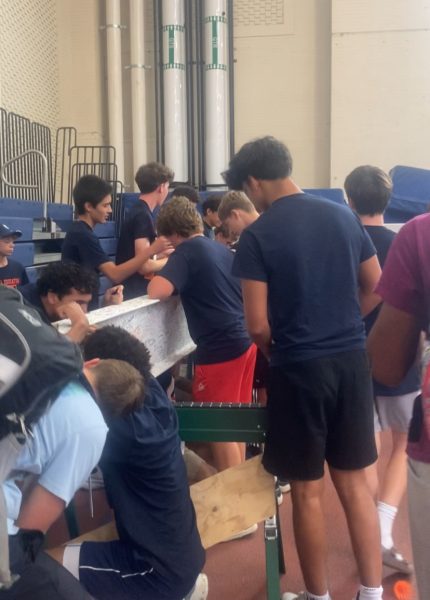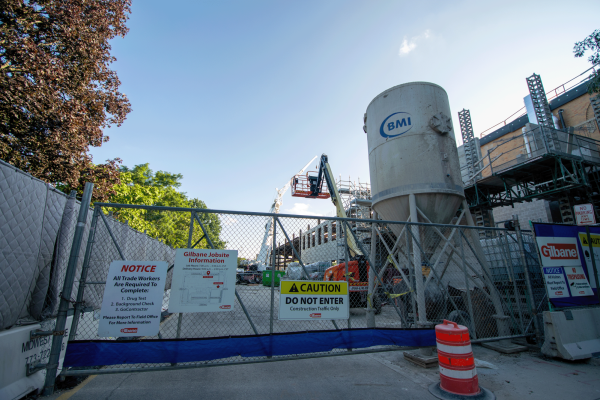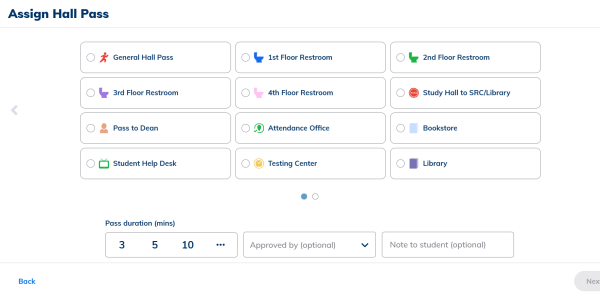Virtual concerts take the stage
For Tina Priceman, the calls started at 7 am March 12; by the end of the day, all shows were cancelled through the month’s end.
Priceman, a musician and owner of Big Fish Booking Co., had spent months planning client tours and now had to tell them their shows were cancelled. She also had to get all artists on the road, even overseas, home as soon as possible.
The same day, Folk/Americana musician and 2008 OPRF graduate Rachel Baiman was on tour in Asheville, North Carolina and had played her first show when everything was cancelled. Both she and her musician husband lost all income sources; every day was one day closer to when she would have to cancel her big international summer tour.
“These shows, especially for an international tour you plan so far in advance…I had already purchased all of the airline tickets, I had booked hotels, I had paid for visas, I had paid for a publicist, so thousands and thousands of dollars were (already paid) for this tour and just having to cancel all of that (was horrible),” said Baiman.
“Not only the money, but all of the time and effort that I knew that my booking agents had put in…There’s so much work that goes into all these little shows even though they’re quite small scale…I had people committed to come on tour with me that were expecting to make a couple of thousand dollars that they were gonna pay their bills with for a couple of months, and having to let them down — it’s hard, it’s really hard.”
Priceman notes some of her musicians “are going ‘stir crazy’ and they need to pick up odd jobs, and some are feeling rather depressed because their work is gone and also the camaraderie they had playing music with their friends, they can’t really do that safely now, so a lot of artists are not even touching their instruments like they were before because their passion for it is paused.”
Others, Priceman said, “are crushing it and they’re being creative and I have one client who has been doing this thing called ‘Club Patio’…that’s been a really great outlet for him, and then I have other clients that haven’t touched their piano in seven months.”
Grammy-nominated jazz pianist Orrin Evans — creator of “Club Patio,” a concert he gave on his patio every Sunday when weather was nice — said he thinks the “hugest impact (the pandemic has had on musicians) is on our spirit and for not being able to see the musicians and see the humans…and the audience members like we used to see when we were performing.”
Baiman also said she missed the collaboration and energy music usually brings. She produced an album for her friend Josie Toney and said it “was an amazing breath of fresh air to be in the studio working on music ’cause I miss it so much. I really miss collaborating with people…in person. Playing with my band is my greatest joy and it’s not the same just playing by myself all the time.”
In the time of the pandemic, musicians have been sharing music with their fans in new ways, many by live streaming.
When planning for a normal concert, Priceman would gage a ticket price by looking at the client’s past ticket history in that location and then predicting how many tickets will be sold. “Supply and demand is what you’re always thinking about,” said Priceman.
For a virtual concert, “we hope that you’d be able to sell more tickets because your fan that’s in London can watch it even though you’re recording it in New York, but it’s live for the whole world, and that’s a nice concept…But here’s the problem: if we had an artist on the road a hundred days a year before, and they’re playing a new city every day, and you could only go to that one city and play for those people, then you can put them in a new city the next day. But if you’re doing a live stream for the world, how many times can you do that before you exhaust your audience?”
Baiman said before a virtual concert, “I have the same type of nerves, I get dressed, I put on makeup, what I would do for a live show, and I try to do a sound check an hour before and make sure everything is hooked up, and make sure I’ve got my water, my set list, all the things you do for a normal show.”
What Baiman enjoys about giving virtual concerts is the chat box. “It’s a little bit more interactive. When you’re playing to a (live) audience, you’re not gonna know everything that they’re thinking and it’s a fun thing to have that instant feedback throughout the show,” said Baiman.
She continued, “What I don’t like is the lack of seeing actual humans. It’s hard to recreate the energy of a room. I think one thing about playing live shows is that it takes everyone out of their house and into this other space that’s all about music and creativity and allows people to escape from their ‘zone’ for a few minutes and with live streaming everyone’s, including me, still in our ‘zones’…and not in that magical third space.”
Another problem with virtual concerts is technological problems with the internet. “It goes wrong all the time,” said Baiman. “I think people are very forgiving, but it’s very common that the internet cuts out…I usually try to get really good sound so I’ll put it through an interface and a nice microphone, and one time I soundchecked it all, it was great, and then I turned on the show and the cable went bad…All of a sudden we all have to learn how to be sound engineers and videographers…It’s a little silly.”
Some venues have had to shut down, not because of the virus or money, but because of streaming difficulties. These places would have so many complaints and requests for refunds it was no longer financially beneficial to continue with concerts. Priceman pointed out that, while it could be interesting and memorable to have technical difficulties at an in-person concert (she gave the example of a power outage at a Rolling Stones concert), it’s simply a drag when the difficulties are online.
While Priceman thinks virtual concerts are a good substitute for the moment, she doesn’t think they’ll be used in the future. This is especially true for the progressive jazz her clients play. “There’s improvisation that comes along with a lot of…their music, so it’s hard to capture that same energy that you would see at a club virtually. We had some clients, they just did a virtual concert and they went to Knoxville, Tennessee to record the shows.”
“Everything was done as well as it could have been, but it missed the mark for me a little bit, knowing this band so well and seeing so many live performances because the way that it was filmed and everything, you missed the interaction between the artists. You missed seeing the interplay between the drummer and the piano player. That’s a big part of why you go to see this kind of music.”
Near the beginning of the lockdown, Baiman streamed concerts she performed either by herself or with her husband from their house in Tennessee. More recently, she’s been able to stream from venues with her band. She’s also planning on pre-recording for a few virtual festivals.
“The standard is changing a little bit. At first, back in March and April, people were really excited just to see someone sitting in their living room and playing straight into the computer, and now I think people are more excited to see a high production value. They want something that has really good sound and lighting and multiple camera angles…That is usually more something that you want to do in advance,” said Baiman.
Evans began “Club Patio,” for the opportunity to play live music. He said although his thoughts on the pandemic haven’t changed since it started, he feels as though he has found ways to “operate within” the pandemic by teaching lessons online, performing virtual concerts, and working in the studio.
“Music is not going anywhere, and live events are going to come back,” said Priceman. “When, we’re not sure, and if anyone tells you they do know, they are lying. It’s a hard time for everyone and there aren’t a lot of jobs to be had at the moment but…most artists aren’t going anywhere and we’re all going to make a good return.”






